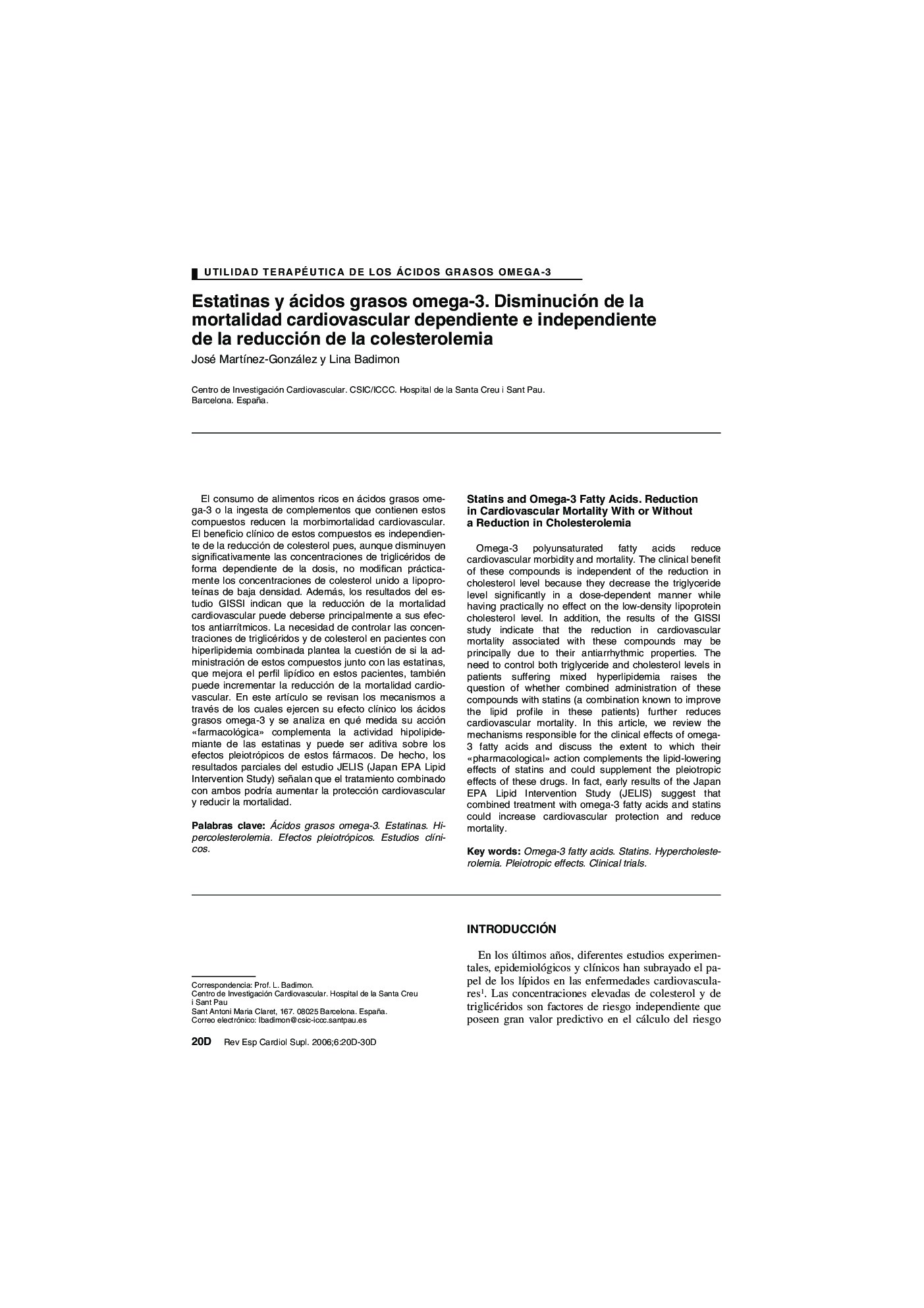| Article ID | Journal | Published Year | Pages | File Type |
|---|---|---|---|---|
| 3019753 | Revista Española de Cardiología Suplementos | 2006 | 11 Pages |
Abstract
Omega-3 polyunsaturated fatty acids reduce cardiovascular morbidity and mortality. The clinical benefit of these compounds is independent of the reduction in cholesterol level because they decrease the triglyceride level significantly in a dose-dependent manner while having practically no effect on the low-density lipoprotein cholesterol level. In addition, the results of the GISSI study indicate that the reduction in cardiovascular mortality associated with these compounds may be principally due to their antiarrhythmic properties. The need to control both triglyceride and cholesterol levels in patients suffering mixed hyperlipidemia raises the question of whether combined administration of these compounds with statins (a combination known to improve the lipid profile in these patients) further reduces cardiovascular mortality. In this article, we review the mechanisms responsible for the clinical effects of omega-3 fatty acids and discuss the extent to which their «pharmacological» action complements the lipid-lowering effects of statins and could supplement the pleiotropic effects of these drugs. In fact, early results of the Japan EPA Lipid Intervention Study (JELIS) suggest that combined treatment with omega-3 fatty acids and statins could increase cardiovascular protection and reduce mortality.
Keywords
EPAEfectos pleiotrópicosIECATFPILipoproteínas de muy baja densidadVLDLLTB5FMDPAI-1AGPIGISSINCEPDArTALAICAM-IJapan EPA Lipid Intervention StudyHDLCOXClinical trialsPleiotropic effectsStatinsEstatinasOmega-3 fatty acidsácidos grasos poliinsaturadosÁcidos grasos omega-3Infarto agudo de miocardioÓxido nítricoLOXNational Cholesterol Education ProgramCardiopatía isquémicaTnTFlow mediated dilatationJELISRiesgo relativoDHACiclooxigenasalipoproteínas de baja densidadLDLlipoproteínas de alta densidadScandinavian Simvastatin Survival StudyIAMinhibidor de la enzima de conversión de la angiotensinaHipercolesterolemiaHypercholesterolemia
Related Topics
Health Sciences
Medicine and Dentistry
Cardiology and Cardiovascular Medicine
Authors
José MartÃnez-González, Lina Badimon,
